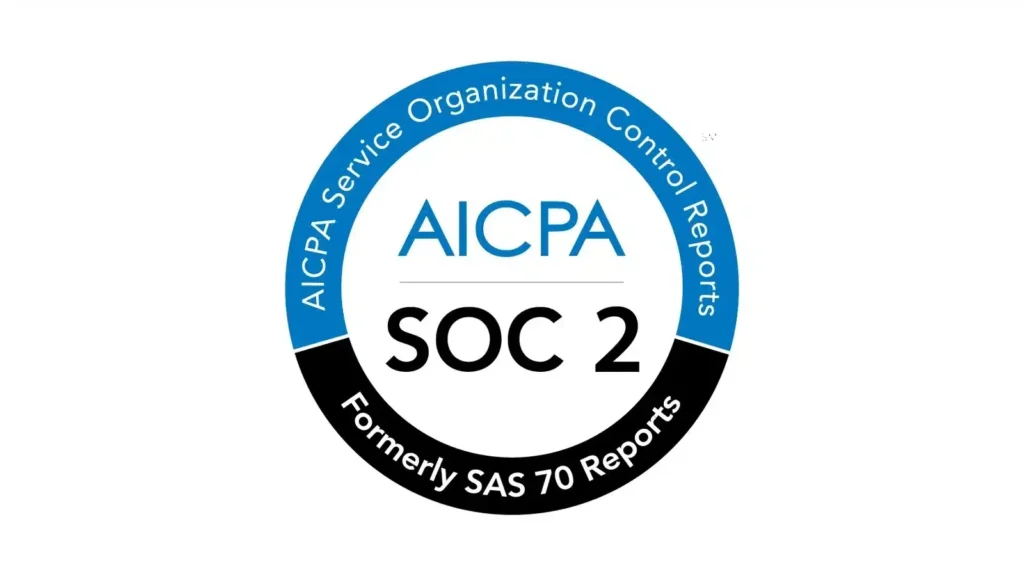-
Solutions
Discover Talent
Access top-tier candidates worldwide with our Global Talent Acquisition and recruitment services.
Employer of Record
Onboard top talent quickly and compliantly with our Employer of Record service.
Manage Employment
Adopt a human-centric approach to employee management, ensuring compliance.
Jump to:
Austria Facts and Stats
Currency
Euro is now the official currency of Austria. Its currency symbol is €, EUR.
Employer Costs
29.77% of employees salary
Languages
German is the official language. Croatian, Slovenian & Hungarian are also recognised.
Population
The current population of Austria is 8.956 million (as of 2023).
Payroll frequency
Monthly
Hiring
Grow your team in Austria
No entity, no problem
To start growing your team in Austria, you must establish a local entity-including an account with a local bank, a local office and an address registered as a subsidiary. This allows you to manage payroll, tax, benefits and compliance for your employees, but can take several months.
Emerald can hire and payroll your workers quickly and compliantly with their ‘ready to go’ entity. Make growing your team simple with Emerald as a global partner.
Emerald can hire and payroll your workers, quickly and compliantly with their ready to go entity. Make growing your team simple with Emerald as a global partner.
Pros & Cons of hiring in Austria
Austria is centrally located within the EU. Being a member of the EU means there is a vast talent pool of experienced and highly skilled workers able to relocate from other EU countries, as well as talent already located within Austria. However, Austrian employment law provides strong labour conditions and protections for employees, with many industry-wide collective agreements. A works council should be established in a business with more than 5 employees.
Why Austria is good for remote workers
Remote working is becoming increasingly popular in Austria. In April 2021, a remote working law took effect. The new law lays the definition of remote work and requires employers and employees to agree to remote working. It also sets out the arrangements for providing work equipment or compensatory payments and allows remote work agreements to be negotiated with works councils.
Start growing your remote workforce now
Employer Costs
| The employer cost is generally estimated at | 29.77% |
| Social insurance | 20.98% |
| Employee pension fund | 1.53% |
| Surplus to fund above | 0.36% |
| Social insurance based on 13th and 14th salaries | 20.53% |
| Family burden equalization fund | 3.90% |
| Municipal tax | 3.0% |
| Disability Levy | 17.35 EUR/month |
| Viennese employers tax | 2 EUR/started week in a month. |
| Monthly work equipment allowance | 30 EUR /month (25 EUR is tax-free, 5 EUR is taxable) - employer cost paid to the employee and not to the statutory bodies. |
Benefits
Mandatory Benefits
Social Security
Family Burden Equalization Fund
Monthly Work Equipment Allowance
Private Healthcare
Employment
Contract
Contracts in Austria must include:
Although a written contract of employment is not legally required in Austria, it is always best practice to have strong written contract in place. Employers are required by law to provide a document to the employee stating the terms and conditions of their employment. This is known as a ‘Dienstzettel’. This does not have to be signed by the employee but must contain information such as the workplace location, salary, collective agreements, job title, annual leave, and termination requirements.
Probation
Probation periods in Austria are permitted for one month, during which time either the employee or employer may terminate without explanation.
Emerald Technology can onboard employees in Austria within 48 hours.
Insurance
01.
Health Insurance
Everyone residing in Austria must have health insurance whether this is public or private. Employers are responsible for enrolling their employees for public health insurance with both employer and employee making contributions. Healthcare is free for those that are studying, retired, disabled, and employees earning below a certain threshold. Some employers may offer private health coverage as an additional benefit.
02.
Social Security Contributions
Austria offers a high-level social security system that is contribution based by both employer and employees. Social security covers areas such as unemployment, pensions, health, maternity, paternity, and parental benefits, disability, and work accident benefits. Employers will automatically register employees for social security insurance when they are hired. Social security contributions are the responsibility of the employer to deduct from an employee’s salary before payment. Both the employer and employee are subject to social security contributions. Below is a guideline for contributions for employer and employee. Please note these can vary.
Contribution Employer Employee
Pension 12.55% 10.25%
Health Insurance 3.78% 3.87%
Unemployment 3% 3%
Family Allowance 3.90% 0%
Severance Fund 1.53% 0%
Accident Insurance 1.20% 0%
Employer Provision Fund 1.30% 0%
Miscellaneous 0% 1%
Leave Policy
01.
Maternity Leave
Expectant mothers are entitled to 16 weeks’ maternity leave (Mutterschaftsurlaub), to be taken eight weeks before the expected due date, and eight weeks after the birth. During maternity leave, employees are entitled to pay which is the equivalent of the average salary over the previous 13 weeks before the maternity leave began.
02.
Paternity Leave
Within eight weeks of the birth, fathers are entitled to one month’s leave unpaid. Fathers may apply for an allowance during this time which is the equivalent of approximately €22 per day.
03.
Parental Leave
Both parents are entitled to parental leave until the child reaches two years old, the condition being that the parent must live in the same household as the child. The minimum period of any parental leave is two months. During the time of parental leave, and provided the conditions are satisfied, childcare allowance (Kinderbetreuungsgeld) may be drawn.
04.
Sickness Leave
Employees in Austria are generally entitled to sick pay under the Sick Pay Act (Entgeltfortzahlungsgesetz) (EFZG). However, the length of any entitled sick pay depends on the seniority and position held by the employee.
Onboarding
Onboarding
As the legal employer, Emerald Technology requires the following employee documents to ensure complete compliance:
Emerald Technology can onboard employees in Austria within 48 hours.
Termination
Resignation and Dismissal
When an employer dismisses an employee it must be with just cause and they must give them notice. The notice period starts from the day after the employer notifies the employee of the termination. Notice must be given in accordance with the following schedule at a minimum:
| Years of Service | Notice Periods |
| 0 - 2 years | 6 weeks |
| 2 - 5 years | 2 months |
| 5 - 12 years | 3 months |
| 15 - 25 years | 4 months |
| 25+ years | 5 months |
Compensation
In addition to notice, employees will also be entitled to compensation payments based on salary once they have completed one year’s service, if employment is terminated without a justified cause (30 day’s salary for each year, up to a maximum of 330 days). The employee will also be entitled to payment of notice days if prior notification was not given, as well as payment of any annual leave days not taken.
If employment was based on a specific contract or task and this ends prematurely, the employee will be entitled to 2.5 days of salary for each month worked.
If an employee is made redundant there will still be a compensation payment. However, this will be at a reduced rate, typically 50% of the monthly salary. An employee will not be entitled to compensation payments based around dismissal regarding the conduct of the employee.
An employee may terminate the employment relationship by constructive dismissal if the employer fails to discharge his or her obligations under the contract. In this case the worker is entitled to payment in lieu of notice, and to an indemnity equal to that which is payable by the employer in the case of dismissal without cause.
Severance
If an employee is made redundant, they are entitled to a payment based on years of continuous service.
If employment lasts longer than one month, the employer is required to pay 1.53% of the employee’s monthly gross salary into an employee provision fund (betriebliche Vorsorgekasse). When terminated, the employee has a severance right against this fund (given a minimum of 3 years of service and the employee did not give notice or was dismissed by cause) or the amount can be left in the employee provision fund, in which a future employer continues to contribute. Employment generally should only end at the end of each calendar quarter (31st March, 30th June, 30th, September, 31st December). This can be changed by individual agreement so that employment can also end on the 15th or at the end of each month.. |
Time off
Statutory Time off
Full-time employees are entitled to 25 days holiday per year, which increases to 30 days after 25 years’ service.
Emerald Technology can onboard employees in Austria within 48 hours.
Salary / Taxes
Work, Pay and Taxes
01.
Minimum wage
There is no statutory minimum wage in Austria. However, national collective bargaining agreements set minimum wages by job classification for each industry. At present, employees in Austria should not earn less than approximately €1,500 per month.
02.
Working time and Overtime
Working hours are generally limited to 40 hours per week (8 hours per day). Some industries have a collective agreement in place that sets working hours at 38 per week. Overtime is generally permitted and there needs to be an agreement in place as to whether this is compensated by payment at an additional rate, or time off in lieu of payment. Working hours should not exceed 12 per day, apart from in exceptional circumstances. Employees who work over six hours per day are entitled to a rest period of at least 30 minutes.
03.
Salary Payments in Austria
Salaries are paid on a monthly basis in Austria. A 13th and 14th month bonus payment, equal to one month’s salary and taxed at a low rate, are customary and are paid in the summer and before Christmas. 13th and 14th month payments will need to be included in a contract, or any collective bargaining agreements.
04.
Bonus
13th and 14th month salaries- holiday bonuses. Usually, companies will grant additional payments equal to one month’s salary as holiday bonuses.
05.
Income Tax
The Austrian tax year runs from January to December. It is the employer’s responsibility to ensure taxes are paid from salaries before payments are made to employees. Income tax is known as Einkommensteuer, the general personal income tax rates are listed below as guidance.
Annual Salary Tax Rate %
Up to €11,000 23%
€11,001 – €18,000 25%
€18,001 – €31,000 35%
€31,001 – €60,000 42%
€60,001 – €90,000 48%
€90,000 + 50%

Worker misclassification in Austria
Similar to other countries, Austria has strict rules on classifying individual contractors and full-time employees differently. Misclassifying your workers can put your business at risk of fines.
Enquire about our global hiring solutions
Start a conversation on how we can assist you to grow your remote team.
